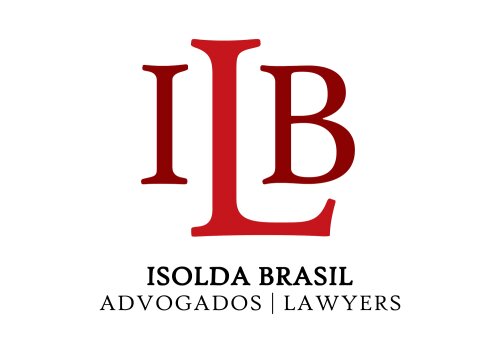Best Job Discrimination Lawyers in Portugal
Share your needs with us, get contacted by law firms.
Free. Takes 2 min.
Or refine your search by selecting a city:
List of the best lawyers in Portugal
About Job Discrimination Law in Portugal
In Portugal, job discrimination laws are designed to ensure equal opportunities in the workplace by prohibiting unfair treatment based on factors such as gender, age, race, religion, disability, sexual orientation, and more. The country has established comprehensive legal frameworks, including both constitutional provisions and specific legislation, to protect employees and promote a fair working environment.
Why You May Need a Lawyer
Individuals facing job discrimination may require legal assistance in various situations. Common instances include unfair treatment during hiring or promotions, discriminatory workplace policies, harassment based on personal characteristics, wrongful termination, or disparities in pay and benefits. A lawyer specializing in job discrimination can offer guidance on the rights and legal remedies available, help gather evidence, and represent individuals in negotiations or legal proceedings.
Local Laws Overview
Job discrimination laws in Portugal are grounded in the Constitution and further reinforced through specific acts such as the Labor Code and Laws on Equality. Key aspects include:
- Constitutional Provisions: The Portuguese Constitution provides a foundation for non-discrimination, including explicit prohibitions against discrimination based on sex, race, language, national origin, and religion.
- Labor Code: The Labor Code outlines the rights and duties of employers and employees, emphasizing equal treatment and non-discriminatory practices in hiring, working conditions, and termination.
- Laws on Equality: Specific legislation addresses gender equality, equal pay, and anti-discrimination measures, ensuring a supportive environment for enforcing these rights.
Frequently Asked Questions
What constitutes job discrimination in Portugal?
Job discrimination refers to unfair treatment based on protected characteristics such as gender, age, race, religion, disability, or sexual orientation. It can occur in hiring, promotions, work conditions, or termination.
How can I prove job discrimination?
Evidence can include witness testimonies, employment records, communication (emails, messages), and any patterns of discriminatory behavior. Consulting a lawyer can aid in gathering and presenting this evidence effectively.
What should I do if I experience discrimination at work?
Start by documenting the incidents and gathering evidence. Inform your HR department or management about the issue. Seek legal advice to understand your rights and explore possible legal actions.
Are there any time limits for filing a discrimination claim?
In Portugal, legal action for employment discrimination usually has to be initiated within one year from the incident. It's advisable to consult a lawyer promptly to avoid missing deadlines.
Can an employer retaliate if I file a discrimination claim?
No, retaliation against an employee who files a discrimination claim is illegal. Employees are protected from adverse actions like termination or demotion, and any retaliation can lead to additional charges against the employer.
What remedies are available for job discrimination victims?
Potential remedies include reinstatement, compensation for lost wages, damages for emotional distress, and changes in workplace policies. Each case may vary depending on its specifics.
Are there any exceptions to the anti-discrimination laws?
Some exceptions exist, such as when certain jobs genuinely require specific characteristics (bona fide occupational qualifications). Legal advice can clarify these exceptions.
How do Portuguese laws protect against gender discrimination?
Legislation requires equal treatment and opportunities regardless of gender, including equal pay for equal work. Women are also protected against pregnancy-related discrimination.
Can foreign workers in Portugal claim discrimination?
Yes, foreign workers have the same rights to fair treatment and can claim discrimination based on national origin, race, or other protected attributes.
What role do trade unions play in anti-discrimination efforts?
Trade unions advocate for workers' rights, including fighting discrimination, offering support to affected employees, and working to create inclusive workplace policies.
Additional Resources
Several resources and organizations can assist with job discrimination issues:
- Commission for Equality at Work and Employment (CITE): Offers guidance on equality and non-discrimination in the workplace.
- National Institute for Rehabilitation (INR): Provides support for individuals with disabilities facing workplace discrimination.
- Portuguese Human Rights Ombudsman: Addresses complaints related to human rights violations, including discrimination.
- Local labor unions and non-governmental organizations advocating for workers' rights.
Next Steps
If you believe you have been a victim of job discrimination in Portugal, consider the following steps:
- Document all incidents of discrimination, maintaining a record of communications and interactions related to the issue.
- Consult with a specialized lawyer to understand your legal rights and discuss potential courses of action.
- Consider informal resolution methods, such as mediation or discussions with HR, before escalating to formal legal proceedings.
- File a complaint with relevant bodies, such as CITE or judicial authorities, to initiate legal actions if necessary.
- Stay informed about your case's progress and actively participate in any legal procedures with your lawyer's guidance.
Taking timely and informed steps can significantly impact the outcome of your case and help secure fair treatment and justice.
Lawzana helps you find the best lawyers and law firms in Portugal through a curated and pre-screened list of qualified legal professionals. Our platform offers rankings and detailed profiles of attorneys and law firms, allowing you to compare based on practice areas, including Job Discrimination, experience, and client feedback.
Each profile includes a description of the firm's areas of practice, client reviews, team members and partners, year of establishment, spoken languages, office locations, contact information, social media presence, and any published articles or resources. Most firms on our platform speak English and are experienced in both local and international legal matters.
Get a quote from top-rated law firms in Portugal — quickly, securely, and without unnecessary hassle.
Disclaimer:
The information provided on this page is for general informational purposes only and does not constitute legal advice. While we strive to ensure the accuracy and relevance of the content, legal information may change over time, and interpretations of the law can vary. You should always consult with a qualified legal professional for advice specific to your situation.
We disclaim all liability for actions taken or not taken based on the content of this page. If you believe any information is incorrect or outdated, please contact us, and we will review and update it where appropriate.
Browse job discrimination law firms by city in Portugal
Refine your search by selecting a city.

















